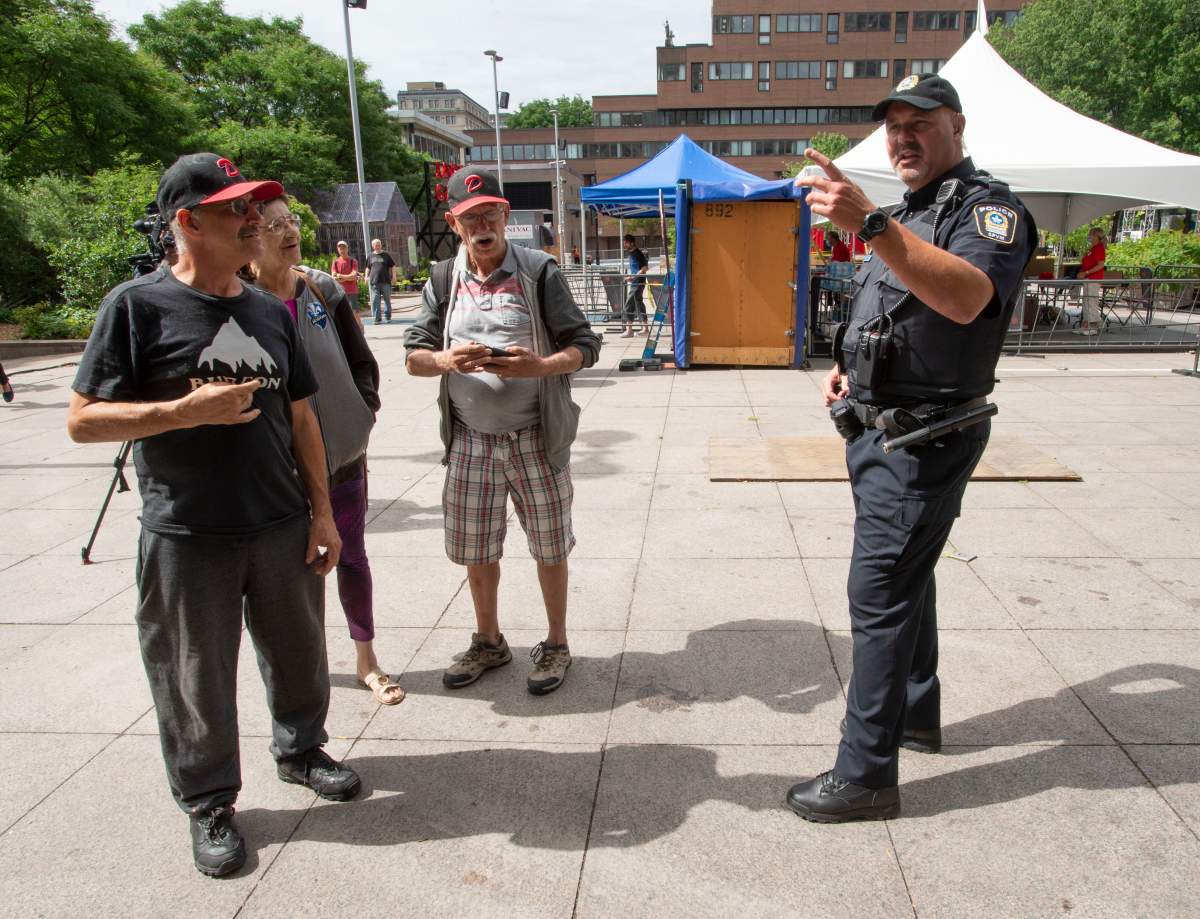The Quebec government has issued provincewide guidelines to police forces regarding street checks, but the policy is raising concerns from various rights groups.

Quebec’s Public Security Department released the guidelines Friday afternoon, in a four-page document that stipulates the practice of stopping of citizens to collect and record their personal information shouldn’t be random, unfounded or discriminatory.
The policy mirrors one introduced by Montreal police in July aimed at curbing arbitrary and discriminatory stops.
The provincial guidelines say that while stops are essential for public safety, they must be based on observable facts or information that gives police reasonable grounds to intervene.
The guidelines, which came into effect Thursday, state that those situations could include assisting someone; preventing a crime, a breach of the law or incivility; collecting information; or identifying a wanted person.
A spokeswoman for the Public Security Department said in an email that it was necessary for the province to introduce the policy given the current social context in Quebec, and the rules will ensure uniformity across police forces.
But some rights groups question why such a policy was introduced without any consultation, and they’re raising concerns over what it doesn’t address.
READ MORE: Montreal police unveil new policy to prevent racial profiling
Montreal police had pledged to introduce a policy after a damning 2019 report by independent researchers showed people from certain backgrounds were much more likely than others to be stopped by police.

Get daily National news
But the provincial policy came into effect ahead of a local public consultation on Montreal’s plan, said Fo Niemi, the executive director of the Centre for Research-Action on Race Relations (CRARR).
“This guideline came out barely 10 days before the City of Montreal consultation on pretty much the same issue,” Niemi said.
Niemi said he’s concerned the provincial policy undercuts the consultation process and blunts any public participation, input or criticism of the Montreal police policy.
“This guideline pretty much pulls the rug out from under the feet of that city consultation — it makes it redundant because this has become provincial policy,” he said.
The union representing municipal police officers welcomed the policy.
“It clearly outlines the practices already in force — it is an additional tool that synthesizes the laws that already guided our interventions,” Francois Lemay, president of Quebec’s federation of municipal police officers, said in a statement.
Niemi agrees while having a uniform, provincewide policy does have some merit as it spells out what police can do, there are circumstances that aren’t covered such as the issue of the racial profiling of Black drivers.
It also allows for checks related to incivilities, which raises concerns of social profiling and discrimination for certain segments of the population, Niemi said.
READ MORE: Montreal city council passes motion demanding end to arbitrary police street checks
“Policies against incivilities lead to discrimination and abuse of police powers in low-income areas and neighbourhoods,” Niemi said, noting that often means places where racialized populations live.
“It will be a licence for a police officer to intercept and fine anyone for ‘uncivil conduct,’ and we’ve never had a public discussion about this policy at the provincial and municipal level before.”
While the Montreal police plan requires officers to collect detailed data, including the person’s ethnocultural identity, after they stop and question someone, the report will only be required if the information gathered from the stop is considered to be of interest to the police force.
Montreal’s policy comes into force later this year.
Ontario introduced rules in 2017 to ban checks in certain situations. Nova Scotia announced last year it would halt the practice after a review ruled such checks illegal.
The Quebec Civil Liberties Union, which had recommended at the end of 2019 that Montreal do away with the practice altogether, said the provincial policy didn’t have any input from those most affected.
“The avenue that seems to be favoured at the moment by the department is to try to supervise an illegal and discriminatory practice,” said spokeswoman Lynda Khelil.
“One wonders what is the message that the Quebec government is sending to the population by authorizing the police forces in Quebec to continue to make arrests which are illegal and discriminatory.”







Comments
Want to discuss? Please read our Commenting Policy first.